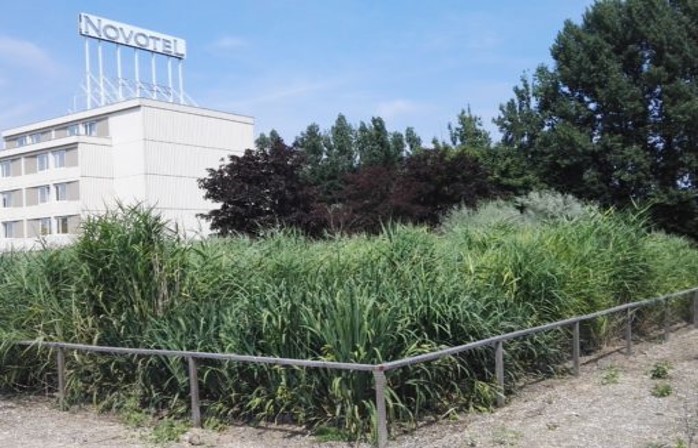Geen bewerkingssamenvatting |
(Zie JIRA-ticket EMT-1768.) |
||
| Regel 43: | Regel 43: | ||
|Start date=24/02/2021 | |Start date=24/02/2021 | ||
|Summary=Design & construction of natural plant-based water purification systems. Wastewater treatment with reed beds: Reed beds or helophyte filters purify wastewater through an optimal combination of natural processes and intelligent techniques. Rietland has been designing and building helophyte filters (reed beds) for the purification of waste water since 1994. | |Summary=Design & construction of natural plant-based water purification systems. Wastewater treatment with reed beds: Reed beds or helophyte filters purify wastewater through an optimal combination of natural processes and intelligent techniques. Rietland has been designing and building helophyte filters (reed beds) for the purification of waste water since 1994. | ||
|Supercontext= | |Supercontext=FACET_Theme_PR_00006 | ||
|Topcontext=PR 00319 | |Topcontext=PR 00319 | ||
|Show navigation tree=Nee | |Show navigation tree=Nee | ||
Versie van 8 apr 2021 09:50
Summary
Rietland combines thorough expertise with creativity and versatility in finding the best solution for various waste water problems. The aim is to find a solution that is both green and cost-effective.
Helophyte filters or reed beds are ecological water treatment systems that are becoming increasingly popular as a solution for a wide range of wastewater problems. Although the reed beds became known for their application as local treatment in remote homes, the systems are also increasingly used for the treatment of industrial wastewater and in the agricultural sector.
ADVANTAGES:
- Low energy consumption
- Efficient and robust treatment
- Minimum maintenance requirement
- Long service life
Examples
NOVOTEL (Antwerp)
Novotel in Antwerp-North chose to treat all their wastewater with a Phytoair in 2015. This 250 m² system purifies the wastewater from 120 hotel rooms and the restaurant. Extra attention was paid to energy consumption: the air blowers are automatically switched on for shorter periods when there are fewer guests in the hotel.
CAMPING 'T HOF BELLEWAERDE (West Flanders)
Because of its rural location, Camping 't Hof Bellewaerde has to deal with a lot of restrictions regarding water and electricity. From their sustainability vision, the entrepreneur wants to make a virtue of necessity. There is no possibility to connect to the sewerage and drinking water network, so the waste water will be purified and a maximum effort will be made on local water reuse. The waste water will be collected separately and then purified via an innovative 'phytoparking' and used as toilet flush water. The grey water (lightly polluted waste water) will be upgraded to potable water (10% of the total drinking water requirement) by the Water Group at a later stage; 90% will be produced from rainwater. More information to be found here.
Strategies
Reduce
Reduce waste water & energy consumption
Re-use
Re-use local water: waste water can be collected, purified and reused as toilet flush water.
Social
Facebook: https://www.facebook.com/Rietlandbvba
See more?
Do you want to know more about this organization? Please visit their website: https://rietland.com/

